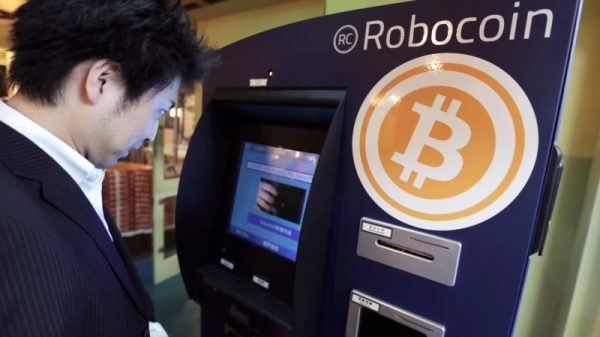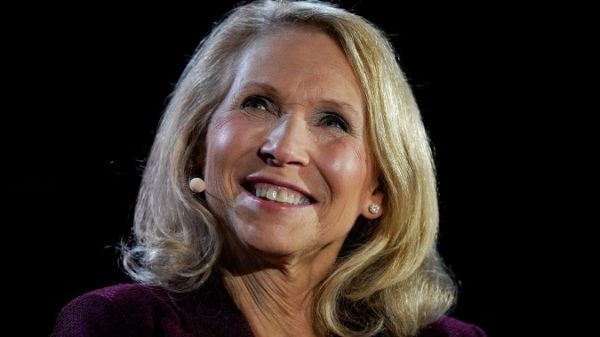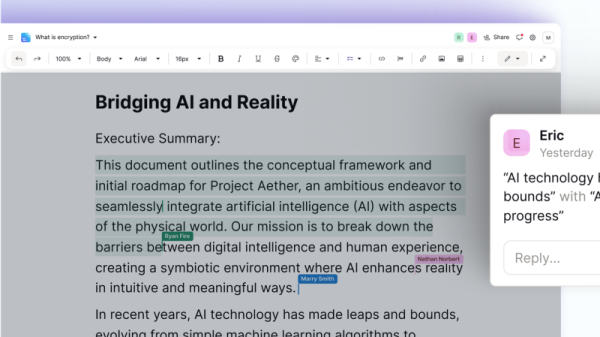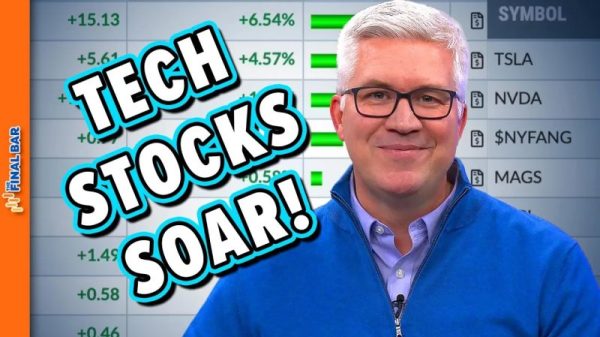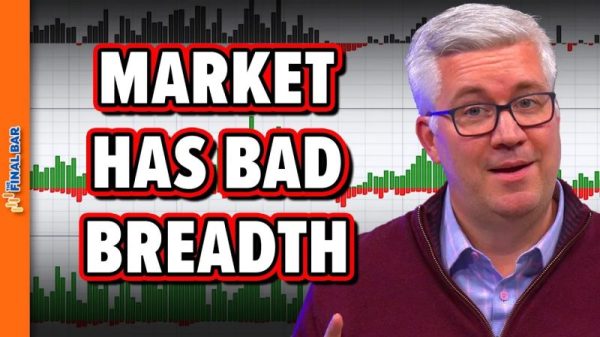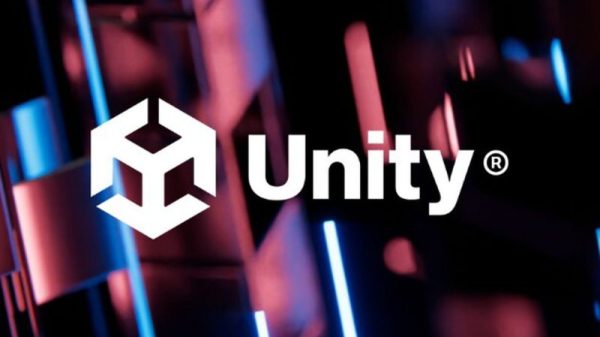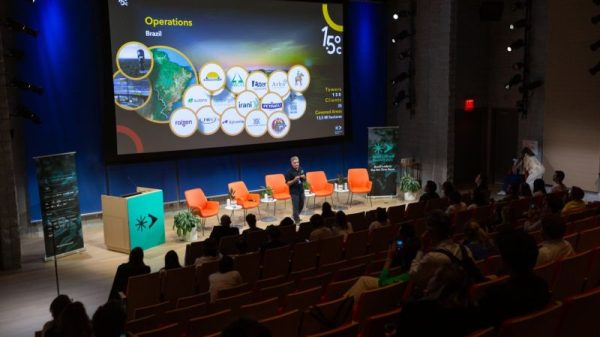NEW YORK — President Biden said Thursday the current Supreme Court has done “more to unravel basic rights and basic decisions than any court in recent history,” but he stopped short of calling for overhauling or expanding the court, as some in his party demand.
“I think they may do too much harm,” Biden said in an interview with MSNBC, just hours after the Supreme Court handed down an opinion ending affirmative action in college admissions. “But I think if we start the process of trying to expand the court, we’re going to blow this up in a way that may be unhealthy.”
In the 18-minute interview with host Nicolle Wallace, the president said some of the justices may have begun to recognize that court decisions that are too out-of-step with most Americans may delegitimize the institution.
“Some in the court are beginning to realize that their legitimacy is being questioned in ways that it hasn’t,” Biden said.
The interview came during a busy stretch for Biden, who announced his reelection bid in late April and has pinballed between fundraisers this week ahead of a fundraising deadline at the end of this month.
He arrived at Rockefeller Center for the interview hours after the Supreme Court struck down affirmative action policies that allow colleges and universities to take into account race and ethnicity when making admission decisions. The decision is another major blow to the liberal agenda after the Supreme Court’s decision to overturn Roe v. Wade last year.
In the 2020 campaign, some Democrats argued for expanding the court, limiting its power or imposing term limits on the justices. Many were infuriated that after Justice Antonin Scalia died in February 2016, Senate Republicans refused to let President Barack Obama replace him, holding it open until President Donald Trump could fill the seat.
Biden, who prides himself on respecting American institutions, has steadfastly rejected such proposals. But on Thursday, he made clear his frustration with the current Supreme Court, telling reporters several hours before the MSNBC interview, “This is not a normal court” in response to a question about whether the court had gone “rogue.”
Writ large, the interview and a series of recent speeches by the president and other members of his administration are an attempt to close the gap between what the White House sees as a historically successful presidency and Americans’ lackluster opinions about the president.
Biden received the lowest approval rating of his presidency two months ago, though a recent Gallup poll puts his approval at 43 percent, the highest since last August. Surveys suggest the economy remains a weakness for Biden despite the White House’s argument that his economic record is impressive by most measures.
Just over a third of Americans, 36 percent, approved of how Biden was handling the economy in a June Yahoo/YouGov poll, while a June Quinnipiac poll found that 24 percent of Americans rated the nation’s economy as “excellent” or “good.”
Biden and his team argue that he has repeatedly been underestimated, noting that he was widely considered a weak candidate in 2020.
“I know the polling numbers aren’t good, but they were the same way when everybody thought I was going to get clobbered in the primary,” Biden said in the interview. “I got 80 million votes.”
These efforts to tout his successes may be a prelude to the message he will try to deliver to voters over the next 17 months. In a Chicago speech on Wednesday, the president repeatedly touted “Bidenomics,” a portmanteau the administration is using to showcase policies that the administration says broadly benefit the middle class.
Biden leaned into that populist tone at the White House on Thursday as he addressed the Supreme Court’s affirmative action decision, which he said will further policies that mean “the only people who benefit from the system are the wealthy and well-connected.”
He said colleges and universities should not abandon their commitment to racial diversity, and announced that he was directing the Department of Education to explore ways to “build … more inclusive and diverse student bodies.”
“I’ve always believed that the promise of America is big enough for everyone to succeed, and that every generation of Americans we have benefited by opening the doors of opportunity just a little bit wider to include those who have been left behind,” he said at the White House.
Biden’s comment raised the prospect that criticizing the Supreme Court could be part of his reelection message, as he seeks to emphasize to Democrats and centrists the importance of having a president who will not roll back what they see as fundamental rights.
Biden argued Thursday, as he has before, that much of the Republican Party now consists of extremists. He said six Republican senators have told him they support some of his positions but cannot admit it publicly or they might lose their primary.
“It’s not a profile in courage, but you know me, I’m an eternal optimist,” Biden said. “I think there’s a moment when they’re going to be able to break.”
But most of his frustration was aimed at the Supreme Court and its recent decisions.
“I just find it so out of sorts with the basic value system of the American people,” Biden said. “I think that across the board, the American people don’t agree with a lot of the decisions this court is making.”
He added, “Its value system is different. Its respect for institutions is different.”
NEW YORK — President Biden said Thursday the current Supreme Court has done “more to unravel basic rights and basic decisions than any court in recent history,” but he stopped short of calling for overhauling or expanding the court, as some in his party demand.
“I think they may do too much harm,” Biden said in an interview with MSNBC, just hours after the Supreme Court handed down an opinion ending affirmative action in college admissions. “But I think if we start the process of trying to expand the court, we’re going to blow this up in a way that may be unhealthy.”
In the 18-minute interview with host Nicolle Wallace, the president said some of the justices may have begun to recognize that court decisions that are too out-of-step with most Americans may delegitimize the institution.
“Some in the court are beginning to realize that their legitimacy is being questioned in ways that it hasn’t,” Biden said.
The interview came during a busy stretch for Biden, who announced his reelection bid in late April and has pinballed between fundraisers this week ahead of a fundraising deadline at the end of this month.
He arrived at Rockefeller Center for the interview hours after the Supreme Court struck down affirmative action policies that allow colleges and universities to take into account race and ethnicity when making admission decisions. The decision is another major blow to the liberal agenda after the Supreme Court’s decision to overturn Roe v. Wade last year.
In the 2020 campaign, some Democrats argued for expanding the court, limiting its power or imposing term limits on the justices. Many were infuriated that after Justice Antonin Scalia died in February 2016, Senate Republicans refused to let President Barack Obama replace him, holding it open until President Donald Trump could fill the seat.
Biden, who prides himself on respecting American institutions, has steadfastly rejected such proposals. But on Thursday, he made clear his frustration with the current Supreme Court, telling reporters several hours before the MSNBC interview, “This is not a normal court” in response to a question about whether the court had gone “rogue.”
Writ large, the interview and a series of recent speeches by the president and other members of his administration are an attempt to close the gap between what the White House sees as a historically successful presidency and Americans’ lackluster opinions about the president.
Biden received the lowest approval rating of his presidency two months ago, though a recent Gallup poll puts his approval at 43 percent, the highest since last August. Surveys suggest the economy remains a weakness for Biden despite the White House’s argument that his economic record is impressive by most measures.
Just over a third of Americans, 36 percent, approved of how Biden was handling the economy in a June Yahoo/YouGov poll, while a June Quinnipiac poll found that 24 percent of Americans rated the nation’s economy as “excellent” or “good.”
Biden and his team argue that he has repeatedly been underestimated, noting that he was widely considered a weak candidate in 2020.
“I know the polling numbers aren’t good, but they were the same way when everybody thought I was going to get clobbered in the primary,” Biden said in the interview. “I got 80 million votes.”
These efforts to tout his successes may be a prelude to the message he will try to deliver to voters over the next 17 months. In a Chicago speech on Wednesday, the president repeatedly touted “Bidenomics,” a portmanteau the administration is using to showcase policies that the administration says broadly benefit the middle class.
Biden leaned into that populist tone at the White House on Thursday as he addressed the Supreme Court’s affirmative action decision, which he said will further policies that mean “the only people who benefit from the system are the wealthy and well-connected.”
He said colleges and universities should not abandon their commitment to racial diversity, and announced that he was directing the Department of Education to explore ways to “build … more inclusive and diverse student bodies.”
“I’ve always believed that the promise of America is big enough for everyone to succeed, and that every generation of Americans we have benefited by opening the doors of opportunity just a little bit wider to include those who have been left behind,” he said at the White House.
Biden’s comment raised the prospect that criticizing the Supreme Court could be part of his reelection message, as he seeks to emphasize to Democrats and centrists the importance of having a president who will not roll back what they see as fundamental rights.
Biden argued Thursday, as he has before, that much of the Republican Party now consists of extremists. He said six Republican senators have told him they support some of his positions but cannot admit it publicly or they might lose their primary.
“It’s not a profile in courage, but you know me, I’m an eternal optimist,” Biden said. “I think there’s a moment when they’re going to be able to break.”
But most of his frustration was aimed at the Supreme Court and its recent decisions.
“I just find it so out of sorts with the basic value system of the American people,” Biden said. “I think that across the board, the American people don’t agree with a lot of the decisions this court is making.”
He added, “Its value system is different. Its respect for institutions is different.”




